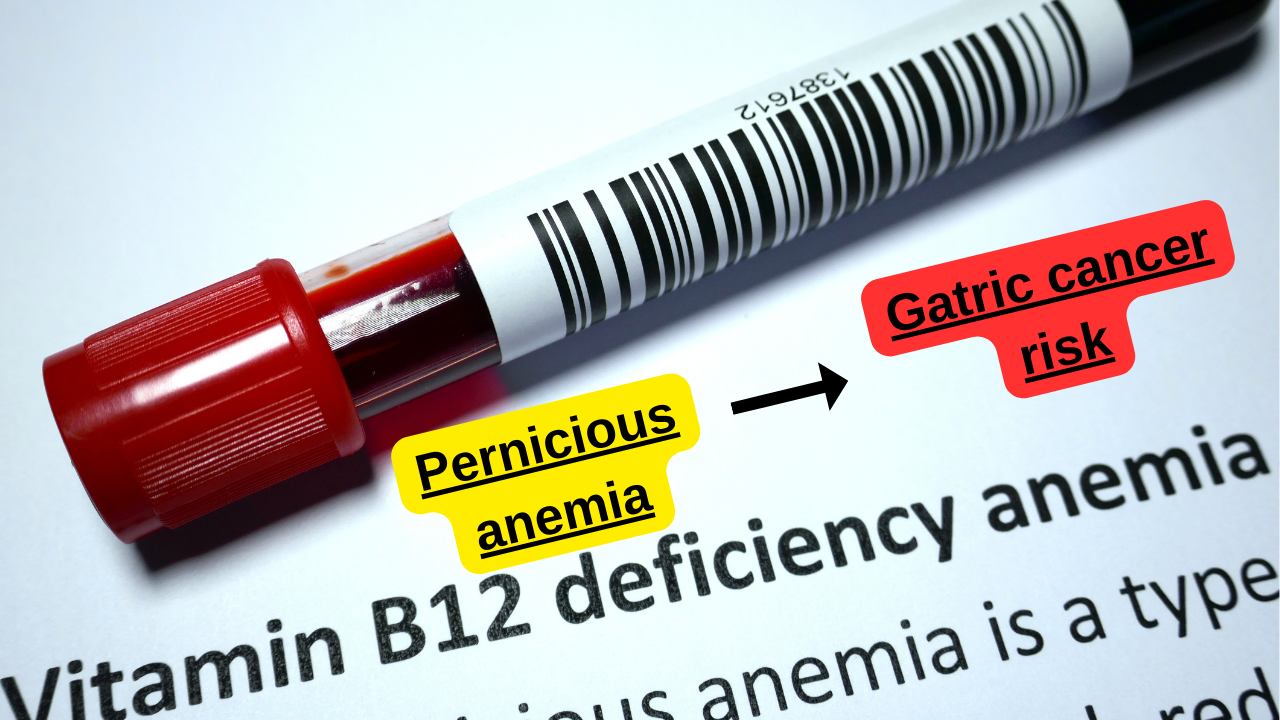This article will examine the question: Can B12 deficiency cause cancer.
There is increasing evidence to show that deficiency of B12 may have a role in developing cancer.
Gastritis and Stomach Cancer:
Vitamin B12 deficiency can lead to chronic gastritis, an inflammation of the stomach lining. Here are some risk factors associated with the development of chronic gastritis:
- Helicobacter pylori infection
- Autoimmune gastritis
- Long Term use of NSAIDs(Non steroidal anti-inflammatory drugs)
- Viral infection
- Smoking
- Alcohol consumption excessively
- Bile reflux
- Stress
If you persistently, especially over months and years are exposed to these risk factors you are at an increased risk for chronic gastritis. Chronic gastritis can alter the stomach’s environment, making it more acidic and potentially leading to changes in the gastric mucosa (the lining of the stomach). Over time, these changes may increase the risk of developing stomach (gastric) cancer. While not all cases of gastritis lead to cancer, persistent inflammation and changes in the stomach lining can create an environment conducive to cancer development.

Weakened Immune System:
Vitamin B12 plays a crucial role in the production of white blood cells, which are essential for a robust immune system. A deficiency in B12 can impair the immune response, making the body less effective at recognizing and destroying cancerous cells. If your immune system is weak, it can allow cancer cells to proliferate more easily, increasing the likelihood of cancer development and progression.
DNA Damage and Methylation:
Vitamin B12 is involved in DNA synthesis and methylation. These processes are important for maintaining the integrity of genetic material and regulating gene expression. B12 deficiency can disrupt these processes, potentially leading to DNA damage and aberrant gene expression patterns. DNA damage and altered gene expression are features of cancer development. As a result, this can promote uncontrolled cell growth and proliferation.

Associated Risk Factors:
B12 deficiency often coexists with other risk factors for cancer, such as poor diet, alcohol consumption, smoking, and certain medical conditions. For example, individuals with pernicious anemia, an autoimmune condition that impairs B12 absorption, may have an increased risk of gastric cancer. Similarly, people with conditions that affect the gastrointestinal tract, such as Crohn’s disease or celiac disease, may be more prone to both B12 deficiency and certain types of cancer. It’s important to note that while vitamin B12 deficiency can contribute to conditions that increase cancer risk, addressing the deficiency through supplementation or dietary changes can help mitigate these risks.
Maintaining a balanced diet, managing your health conditions, and receiving appropriate medical care are key strategies for reducing the likelihood of cancer development associated with B12 deficiency. This video looks at Vitamin B12 supplementation.
Check out the YT video here.
Sources:
https://www.ncbi.nlm.nih.gov/pmc/articles/PMC8126961/
https://www.ncbi.nlm.nih.gov/pmc/articles/PMC5593317/







